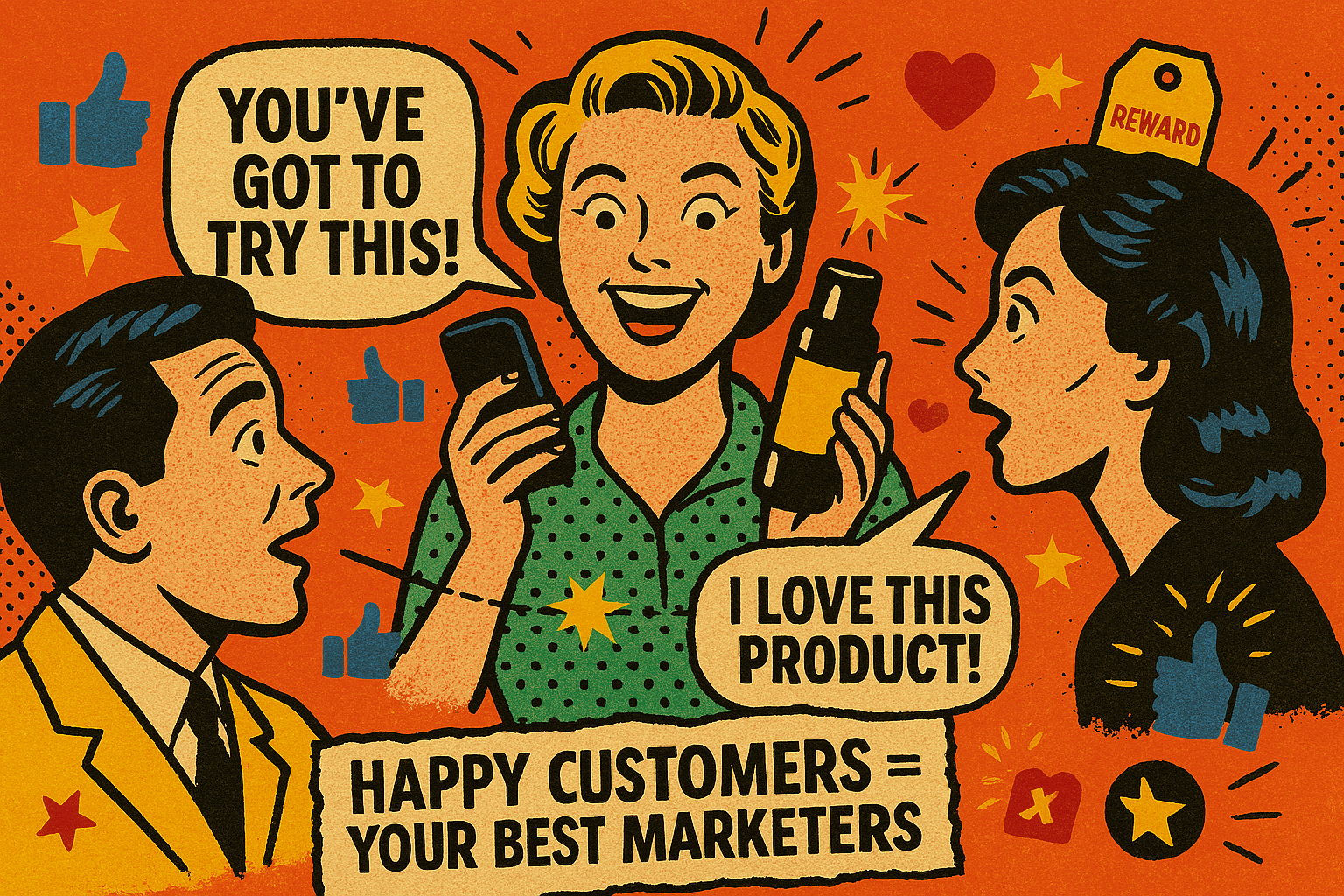Referral marketing is one of the most effective strategies for small businesses. It leverages personal recommendations to build trust, attract new customers, and create lasting loyalty—all while keeping marketing costs low. By harnessing the power of word-of-mouth, businesses can spark a ripple effect that drives growth. Let’s explore why referral marketing is so impactful and how to implement it successfully.
Why Referral Marketing Works
Referral marketing is rooted in a simple truth: people trust recommendations from friends and family more than advertisements. This principle, known as “Know, Like, Trust” and popularized by Bob Burg, author of Endless Referrals, describes the steps customers take before engaging with a brand:
- Know: Build awareness and credibility by making your brand visible and authoritative through social media, content marketing, and networking.
- Like: Connect personally by being authentic, relatable, and transparent, while sharing your brand’s values.
- Trust: Earn confidence through consistent service, positive reviews, and open communication.
This approach cultivates loyalty, boosts conversions, and builds long-term relationships—all while keeping the sales process natural and engaging.
The Magic Formula for Referrals
To succeed in referral marketing, follow this simple formula:
- Do Great Work. Exceptional products and services are the foundation of any referral strategy. When you exceed expectations, customers naturally want to share their experiences.
- Ask for Referrals. Many satisfied customers are happy to recommend your business—they just need a gentle nudge. Whether it’s a casual conversation or a structured referral program, don’t hesitate to ask.
- Show Gratitude. A heartfelt “thank you” goes a long way. Recognize those who refer others with gestures like handwritten notes, discounts, or exclusive perks to make them feel valued and encourage future referrals.
Spreading the Word: Making Referral Marketing Fun
Think about the last time you found an amazing restaurant, product, or movie—you couldn’t wait to share it with others. That’s the heart of referral marketing: making customers so excited about your business that they become its biggest advocates. Adding fun elements, such as gamified rewards or social media challenges, can amplify this excitement and increase engagement.
The Benefits of Referral Marketing
Referral marketing offers practical advantages for small businesses:
- Lower Customer Acquisition Costs. Unlike traditional advertising, which requires a big budget, referral marketing leverages existing customers to reach new audiences. This reduces overall marketing expenses while ensuring a higher-quality audience.
- Higher Conversion Rates. Referred customers trust your business from the start because they value the recommender’s opinion. This trust leads to higher conversion rates and better-qualified leads.
- Long-Term Loyalty. Customers who join through referrals often have a stronger emotional connection to your brand. They’re more likely to make repeat purchases and refer others, creating a self-sustaining cycle of loyalty and growth.
Crafting a Successful Referral Program
To get the most out of referral marketing, your program should align with your business goals and be simple for customers to use and enjoy.
- Tailor Rewards to Your Brand. Choose rewards that resonate with your audience and reflect your brand’s values. For example, a boutique might offer exclusive discounts, while a software company could provide extended free trials.
- Simplify the Process. If your referral program is confusing or complicated, customers won’t participate. Make it easy by offering simple sharing options like referral links, promo codes, or one-click social media sharing.
- Promote Strategically. Use email campaigns, social media, and in-app notifications to spread the word about your referral program. Ensure your audience knows about it and can participate effortlessly.
The Timing Advantage
Timing plays a key role in asking for referrals. The best time to ask is when customers are happiest—after a positive experience or glowing feedback. Make the request casual, personal, and easy so it feels natural and sincere. For example, if a customer sends an email complimenting your product, replies to a survey with high satisfaction scores, or leaves a five-star review online, they’re signaling their trust and appreciation for your brand. These are prime opportunities to gently ask for a referral, as they already feel positive about their experience.
Your Next Move: Get Referrals Rolling
Referral marketing is more than just a way to gain new customers—it reflects your business’s quality and the trust it inspires. You can turn satisfied customers into enthusiastic advocates by delivering exceptional experiences, fostering trust, and creating emotional connections.
Start small, experiment, and keep refining your strategy. With time, referral marketing can drive organic growth, reduce costs, and create lasting loyalty, all powered by the most genuine endorsement: happy customers spreading the word.




